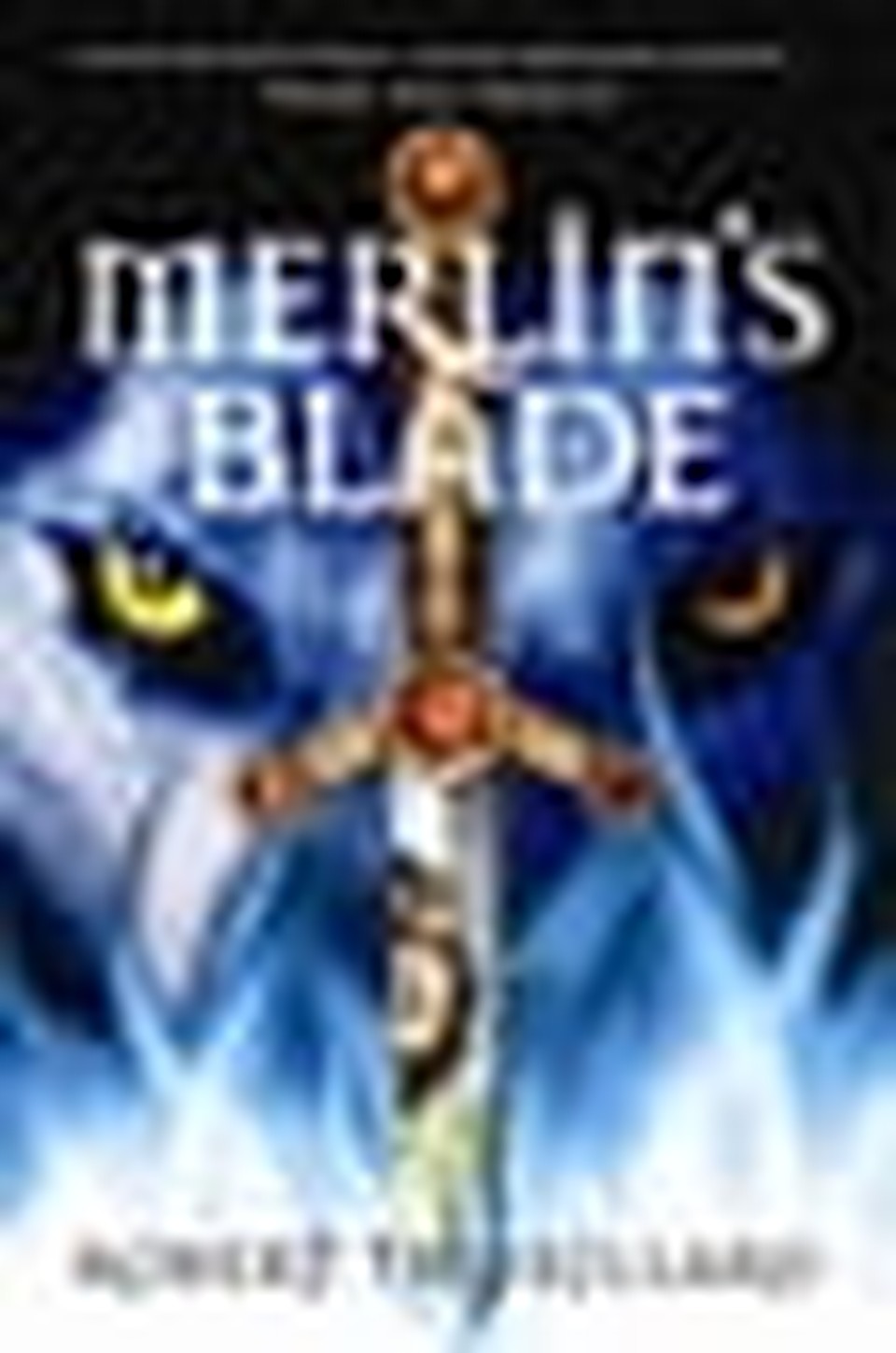Merlin’s Blade A New Twist on an Old Tale

Author: Robert Treskillard
Title: Merlin’s Blade
Publisher: Zondervan
After all these years, and seemingly infinite permutations of time, place, and character, it would seem that the Camelot legend might possibly have reached maximum build-out. From Broadway to the BBC, Richard Gere to Keira Knightley, is there room in the Arthur canon for another origin myth?
Merlin’s Blade, the fantasy debut of Robert Treskillard, and the first in a forthcoming series, dares to challenge this question by taking the Merlin myth into a new direction, one that’s not radically different from what’s been done before, but enough of a deviation from the norm that it injects fresh life into one of literature’s most iconic characters. The success of this book, however, is as much a credit to Treskillard’s storytelling instincts and his abilities at character and world-building as it is to any tweaks he makes to the legend about King Arthur’s court sorcerer/mentor/Gandalf figure.
Treskillard places Merlin in fifth century Britain, shortly after the end of Roman rule, in a period where life is lived on the ragged edge and Christianity is making new forays into the British Isles. Merlin isn’t a wizard, or even magical. In fact, he’s a boy on the cusp of manhood, an apprentice in his father’s blacksmith shop, who is nearly blind after a wolf attack. Like many of his village, Merlin is a follower of Christ and relies on the town abbots for spiritual guidance.
The plot kicks into motion with the unearthing of a mysterious stone which fell to earth 70 years earlier, a la Superman. Morganthu, the man who uncovers the stone, is a druid whose goal is nothing less than the subjugation of the entire isle of Britain under pagan druid rule. He uses the stone – which glows bright blue when called upon – to woo the town to his side. It possesses the alluring ability to offer anyone who looks at it a glimpse at their wildest dreams fulfilled. Of course, it also kills those who challenge the druids by setting them on fire. Merlin and the abbots take on Morganthu, but find the going tough. Things get more complicated when High King Uther, whose only son Arthur is only a newborn at this point, arrives on the scene. The epic struggle for the fate of Britain commences.
In its earthy tone, wry humor, and depiction of authentic characters situated amidst a cosmic backdrop, Merlin’s Blade immediately brings to mind Stephen Lawhead’s legendary Arthurian series The Pendragon Cycle. Of course, Trekillard also has achieved one of the most difficult feats to master in high fantasy epics like this – weaving together a handful of storylines into a cohesive, expertly-paced narrative.
Treskillard also handles the spiritual content deftly. The “conversion” of Merlin to Christianity for the purposes of this tale never feels like pandering to a Christian audience. There is ample evidence that Christianity was emerging in Britain during this time period, and so it doesn’t feel like a reach to think that a young Merlin, growing up in the shadow of a monastery, would have found Christ. It’s actually a neat “what-if” scenario and unburdens the Merlin legend from a rather tired convention. We live in an era where realism in superheroes is the rage (Nolan’s Batman trilogy, for example). So, in a way, it’s refreshing to see Merlin not have magic in his bag of tricks. Instead, he has to rely on his determination, courage, and spiritual devotion to get by.
*This Article First Published 4/19/2013
Originally published April 19, 2013.





